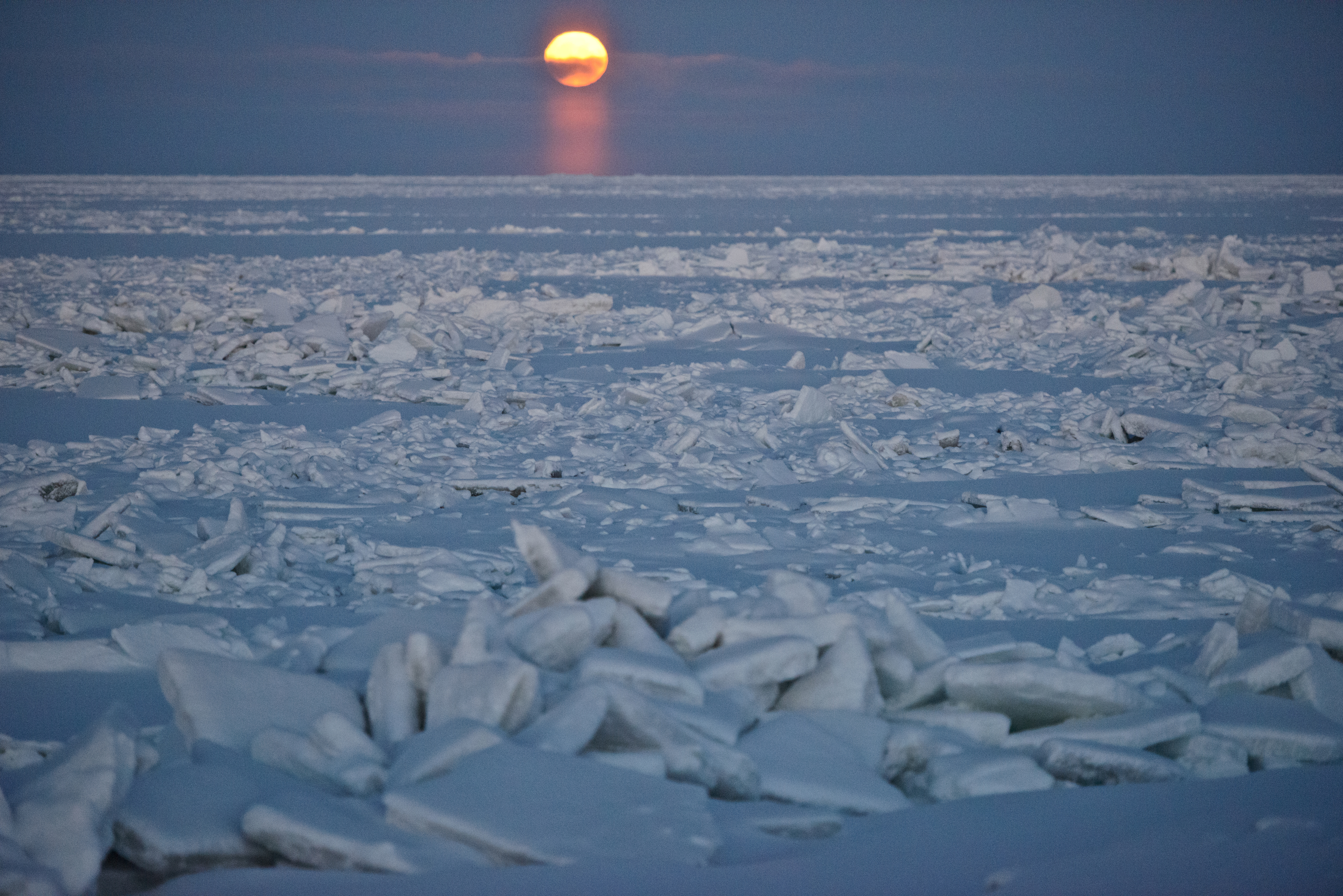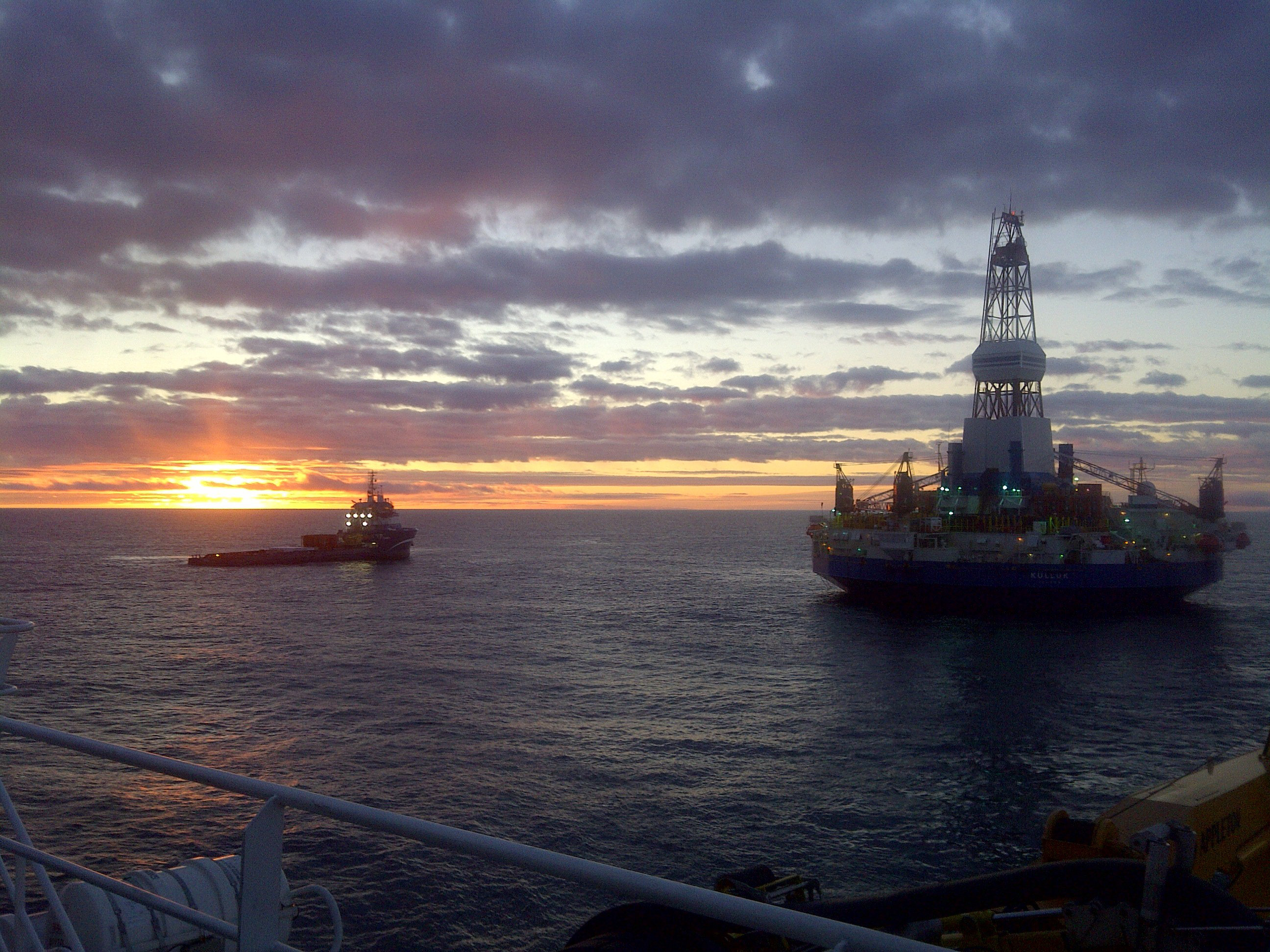Trump administration launches plan to boost offshore oil development in Arctic and elsewhere

Less than two years after Royal Dutch Shell abandoned its offshore Arctic oil exploration program and triggered an exodus of other companies in the Chukchi Sea off northwestern Alaska, the Trump administration says it’s time to open more federal waters in the Arctic and elsewhere to oil drilling.
The Interior Department on Thursday issued a call for comment on a new five-year outer continental shelf leasing plan that would replace the current program, which was crafted over three years by the Obama administration and which Trump administration officials have criticized as too restrictive.
In a statement, Interior officials said the Trump administration wants a more aggressive approach to oil extraction from federal waters, and they cited Trump’s mantra about “energy dominance.”
[Trump to call for US ‘dominance’ in global energy production]
“Developing a new National Offshore Oil and Gas Leasing Program that respects environmental and economic sensitivities but still allows us to responsibly develop our resources is critical to reaching President Trump’s goal of American energy dominance,” Interior Secretary Ryan Zinke said in the department’s statement. “Offering more areas for energy exploration and responsible development was a cornerstone of the president’s campaign and this action is the first step in making good on that promise for offshore oil and gas.”
“The Trump Administration is dedicated to energy dominance, growing the economy and giving the public a say in how our natural resources are used, and that’s exactly what we are doing by opening up the Request For Information and a new 5-year plan,” acting Assistant Secretary Kate MacGregor said in the statement.

The current five-year leasing plan, which runs from this year to 2022, schedules 11 lease sales — 10 in the Gulf of Mexico and one in federal waters of Alaska’s Cook Inlet. That Cook Inlet sale was held last week; it reaped about $3 million for 14 tracts from Texas-based Hilcorp Energy Co.
Offshore Arctic lease sales, in both the Beaufort Sea off northern Alaska and the Chukchi, had been considered for the 2017-2022 program but were omitted from the final five-year plan released in November by the Obama administration.
The Trump administration action on Thursday — which followed an April executive order by the president — does not propose any specific lease sales. But Trump and administration officials have made it clear that they want more Arctic oil drilling and fewer Arctic restrictions.
Trump’s April executive order, in addition to ordering a do-over of the five-year leasing plan, rolled back or eliminated Obama-era protections for the Arctic and sub-Arctic.
It will likely take two years to complete the new plan, aimed at the 2019-2024 period, Interior officials said Thursday. In the interim, the existing five-year plan will stand, they said.
Advocates of Arctic drilling welcomed the launch of a replacement leasing program.
“I’m pleased the administration has wasted no time in starting the process for a new and better plan that could increase offshore development in Alaska and elsewhere,” U.S. Sen. Lisa Murkowski, R-Alaska, said in a statement. “With technological innovation, offshore development is now cheaper, easier, safer, and farther-reaching than ever before. What has not changed is that offshore development is a critical source of energy, jobs, and security, so I look forward to working with Secretary Zinke to develop a strong plan for our state and nation.”
Environmentalists blasted it.
“It is disappointing but not surprising that Donald Trump and Ryan Zinke are reopening the five-year planning process, which was just completed with input from millions of Americans who said, loud and clear, that we do not want offshore drilling off our coasts,” Lena Moffitt of the Sierra Club’s Our Wild America campaign said in a statement. “Expanding drilling off our shores would put our coastal communities’ health, economic well-being, and environment at risk, and continue to ignore the impacts of climate change across the nation.”
Lois Epstein of The Wilderness Society leveled criticism at the possibility of more offshore Arctic drilling.
“Oil companies recognize that Arctic Ocean drilling always will be the riskiest and most costly drilling in the world. Industry relinquished nearly all its Arctic Ocean leases following Shell’s disastrous drilling program in 2012 and 2015. This five-year program redo is a terrible waste of government resources,” she said in a statement.
Shell’s program cost the company at least $7 billion but failed to produce what the company considered a commercial-quantity oil discovery. The program was plagued with problems, the most notable of which was the wreck of a drill ship, the Kulluk, when it was being towed to the Seattle area. Environmental and safety problems produced various civil and criminal penalties for the company and for a contractor, Noble Drilling.
After Shell announced its pullout in September 2015, other companies dropped their Chukchi Sea leases.
Currently, there are 42 active leases in the federally managed Alaska outer continental shelf, all in the Beaufort, according to the U.S. Bureau of Ocean Management. That does not include results of the Cook Inlet sale, which are still being processed by the agency. Two plans are pending to develop or explore some Beaufort leases that are close to shore. One, from Hilcorp, seeks to develop the long-languishing Liberty prospect. The second, from Italy’s Eni, seeks to conduct exploration drilling into federal territory from an island in state territory.